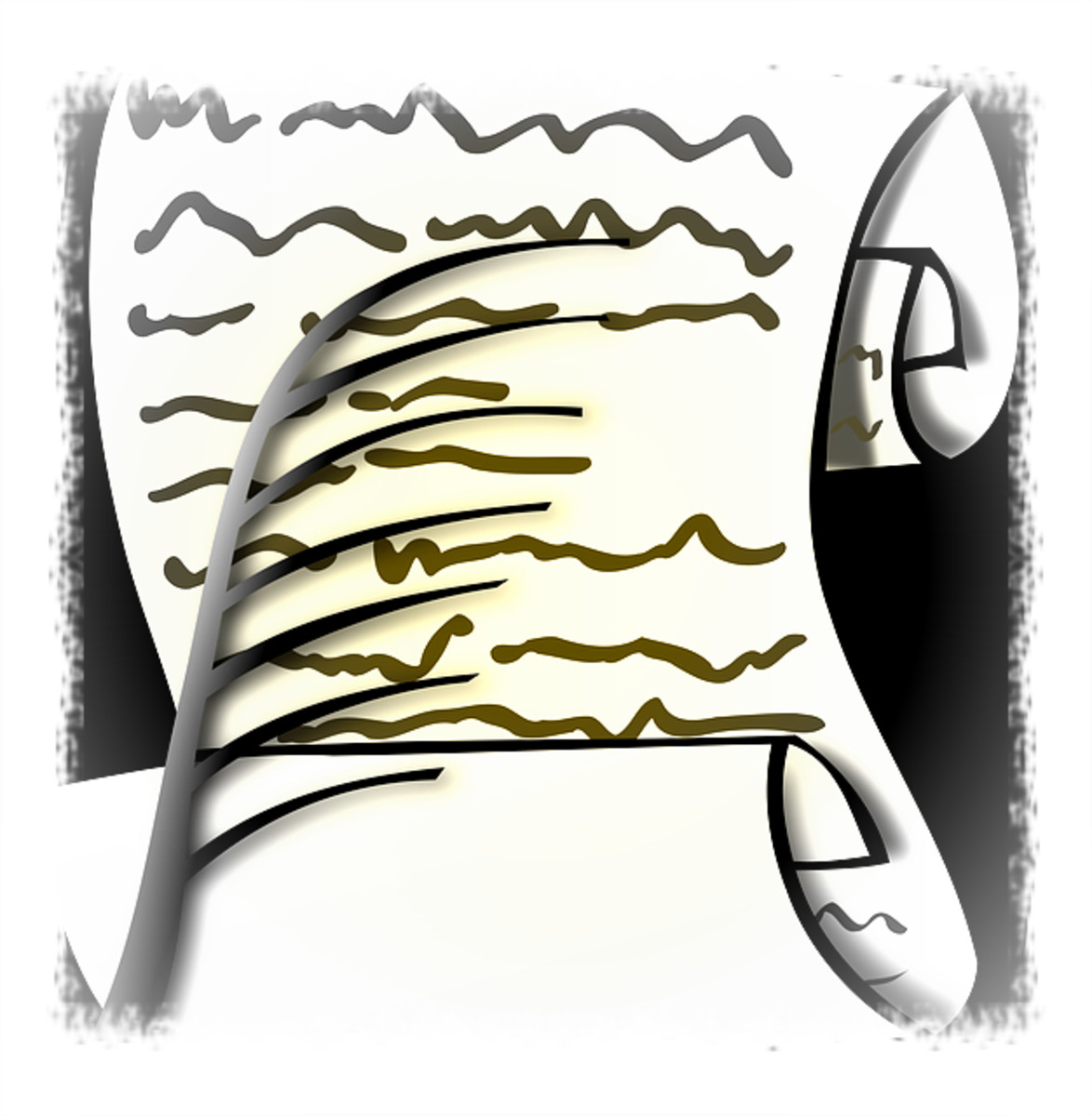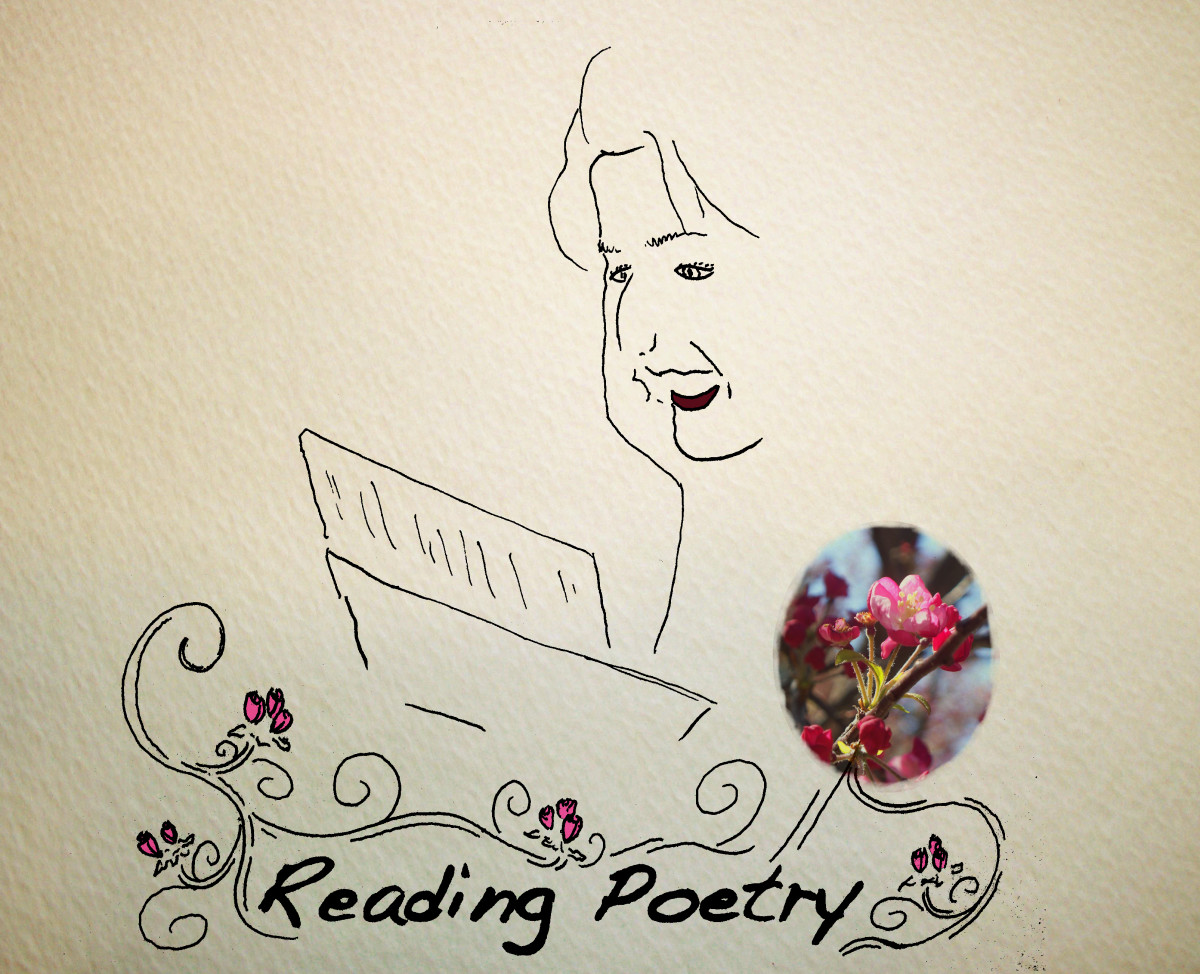Understanding Poetry: Tips and Advice

Introduction
Robert Frost once said, "Poetry is when an emotion has found its thought and the thought has found words." It can be complicated, but when understood, it can tap into our deepest emotions. Whether it's for a school assignment or as a hobby to liberate our souls, understanding poetry is very important.
1. Read the poem multiple times
Poetry can be deep and have several meanings. The first and most important point is to read the poem many times. In order to understand it, you need a clear picture of the characters, phrases, settings, etc. Try reading the poem very slowly and reading it quickly. If you need to, print the poem out and write notes on and around the poem's text. Take special not of what confuses you. Look for the words and phrases that you like. Read it so that you feel comfortable with the entire flow and structure of the poem.
2. Read the poem loud
Reading a poem out loud allows you to feel the rhythm and cadence of the words. There is a special power to the poem as you speak the written words. You can feel their power and meaning so much more forcefully. Often this can give you some insight into what the poem means. The words can bring about certain emotions as you read them. When you read, try varying the tempo, emotion and volume with which you read the poem. Try whispering the words or shouting very loudly. Imagine you are talking to a lover or an enemy. Throughout all of these readings, notice how the words and presentation make you feel.

3. Look Up Unfamiliar Words
Most poems are fairly short. As such, each word is chosen with a lot of thought and intent. Look up the words to make sure they mean what you think they mean. This will allow you to understand exactly what the author was trying to say. It is also important to realize that many words have other, less familiar meanings. It is possible that the author was referencing other definitions or connotations. Particularly when you come across a word that strikes you, look up alternative interpretations of that word to try to identify exactly what the author was saying.
4. Analyze the Title
The title can give you useful insights into the topic of the poem. Sometimes, the title is just a word or a name and the meaning is obvious. Other times, the title is a short phrase or seems to reference something that seems unrelated. Look at how the title relates to the rest of the poem and what the author was trying to add or say by selecting this specific title. Do this several times as you try to analyze the poem. The title may have different meanings as you understand more. Pay particular attention to a title that seems abstract or unrelated. These deep titles often have ties to the text if you spend time pondering the connections.
5. Identify the Tone
Figure out the mood or attitude of the poem. Is the author happy, annoyed, depressed? Why does he or she feel this way? What emotions are they trying to get the audience to feel? The actual words are important, but so is the tone behind them. You should also look for any shifts in tone. Does the author start sad and then switch to happy? Do they start out praising someone and then end up criticizing them? This takes a careful eye, but being able to identify shifts in tone is crucial. Try focusing on the words around the shift in tone to identify the heart of the poem and the source of the emotion.

6. Identify Themes
Often, poets use themes in their poetry. Look for repeated words or types of words. Sometimes they use symbolism. Perhaps they are talking about one topic but describe it in Biblical terms. Why did they describe something with the particular words that they did? Look for sentence structure or difference in word choice. There can be meaning almost anywhere.
7. Look at the History and Context
If you can, find out when and where the poem was written. What was going on at the time? How would this have influenced the author? What about the poet in particular? What is his or her history? What relation does the subject material in the poem have to him or her? How do their life experiences influence the poem? By understanding the external factors that influenced the poem, you can develop a greater understanding and appreciation for the poem itself.
Conclusion
Analyzing poetry can be extraordinarily rewarding. It takes hard work and requires a different sort of analysis. It was written with more than just the mind. It was written with the heart and soul. Consequently, it needs to be understood with just the mind. Good luck!
Please add you advice and insight in the comments below.
How do you feel about poetry?
Poetry Analysis
- Poetry Analysis: "Unveiling" by Linda Pastan
A look at the themes and techniques used in this classic poem. - Poetry Analysis: "London" by William Blake
A look at the classic poem - Poetry Analysis: "Those Winter Sundays" by Robert Ha...
A look at the themes and background of this classic poem. - Poetry Analysis: "Douglass" by Paul Laurence Dunbar
Paul Laurence Dunbar is an incredibly talented writer and provided hope to African-Americans in his time. - Poetry Analysis: "Piano" by D.H. Lawrence
A look at the poem - Poetry Analysis: "Ex-Basketball Player" by John Updi...
A look inside one of John Updike's most famous poems.









